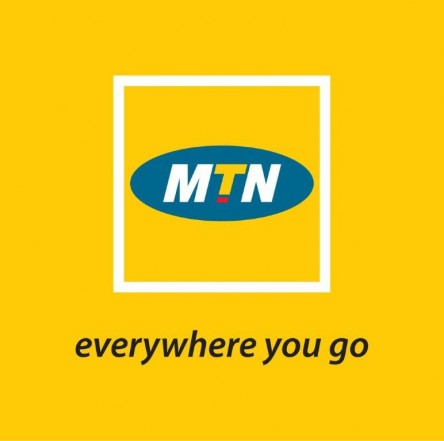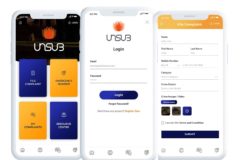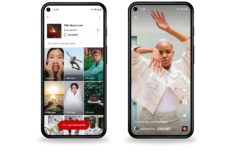Last December Dobox, a Video on Demand startup, struck a deal with MTN to provide customers with better access to their catalogue of Nollywood movies. I must confess – and I probably speak for a lot of people – I’m not so sure I heard about Dobox before the announcement of the MTN partnership. However, I believe that the MTN partnership has been a major boost. But is it enough to topple the competition in iROKOtv (yes, competition)? Probably not….yet. Jason Njoku won’t even acknowledge MTN Dobox as competition. If you’ve not read his post on defining competition, you probably should read it first. While he raised some really good points, I think he might be missing a few seemingly benign but, I dare say, very important details.
Freemium vs “free” premium
Jason is convinced iROKOtv’s business model is more attractive in comparison with MTN Dobox’s premium-only. With iROKO, users can stream unlimited, but ad-supported, movies for free. They can also opt to have the ads removed by paying a monthly subscription of about N800 a month (iROKOtv Plus), which will also grant access to exclusive content – 13 new movies a month. MTN Dobox, on the other hand, offers no free content. You part with between N150 and N500 per content. You can stream as many times as you want but only within a set period (3 – 4 days). iROKOtv’s model appears to be more attractive.
I’ve had a couple of “close shave” encounters with iROKOtv. I’m not exactly a Nollywood fanatic but once in a while someone reliable recommends a movie they think I might like, often initially exclusive to iROKO. But I can hardly ever justify paying a full subscription fee just to see one movie – 12 others of which I know I will never so much as glance – so I always end up not subscribing. Of course, in light of Dobox’s pricing, shelling out N800 to iROKO for one movie might not be such a bad idea after all. As long as I’m free to opt out once that month’s subscription expires.
But there’s one “tiny” detail Jason conveniently chooses to ignore. The fact that with MTN Dobox, I don’t pay for data used in streaming. That’s a differentiating factor you just can’t ignore. Not in a country where internet is still so damn expensive. You’ve got to wonder – of how much use is having access to 13 videos a month if I may end up seeing only a few because I’m constantly scrutinizing my data usage?
The Blackberry motivation
iROKO is available on the Web, Android and Windows Phone. MTN Dobox is available on the Web, Android and (legacy) Blackberry. Anyone see what I see? Yes, it works on freaking legacy Blackberry. I’ve tested it and it works just fine, by legacy Blackberry standards. That’s a really big deal in this part of the world. A lot of consumers still rely on Blackberry Internet Service for their cheap internet plans. But even as cheap as the BIS plan is, it doesn’t allow streaming (at least not officially). You usually have to get a separate data plan for streaming. The average (Nollywood loving) Blackberry user, for whom the internet usually begins and ends with BIS, couldn’t be bothered with such a hassle. So what happens when someone offers them the option to stream rented movies for free on their device?
https://twitter.com/MTN180/statuses/427411736262901760
https://twitter.com/MTN180/statuses/425538347801788416
https://twitter.com/MTN180/statuses/424564013159428096
The giant in MTN
True Nollywood fans are very familiar with the concept of having time-limited access to rented movies. For these guys, what’s most important is that every movie they can normally rent from the neighbourhood video rental is also in Dobox’s catalogue. Jason points out how the non-exclusivity of movies on Dobox’s catalogue means iROKO can easily “raid their content at will”. Fair point. But he still has to acknowledge the fact that they’re not dealing with just Dobox, but also with MTN. MTN aren’t new to the entertainment game and they possess the potential muscle to out-muscle (pardon the pun) any competition. I have no idea how iROKO get their content, I’m sure the iROKOtv crew know their onions, but MTN are no pushovers either.
Of course there’s the concern of adoption rate. iROKO have a minimum of a 2-year head start so Dobox will have to play catch up. But remember that MTN have some of the biggest and most conspicuous ad campaigns in the country; they spare no expense in tooting their horn. Remember the Blackberry people described earlier? MTN know how to get those guys. And those guys are not to be taken for granted as they will form the bulk of user base. If we’ve learnt anything from history it’s that while MTN may not always be the first there, they almost always have the last laugh. Remember the Saka Saga?
Yes, the figures Jason referenced are quite impressive but most of these hits are coming from outside the country. Last time I checked, MTN has at least 50 percent of the total 56 million mobile internet subscribers in Nigeria. There’s a lot of potential in those figures. I mean, this is MTN we’re talking about. Which brings me to the final point
Define your competition
I feel like Jason needs to clarify exactly who iROKOtv’s primary target audience is. He’s referencing traffic figures from the United Kingdom while referring to DSTV and GOtv as competition. Last time I checked, DSTV and GOtv are not available in the UK. The way I see it, MTN Dobox has more potential to be real competition for Multichoice in Nigeria. Traffic to iROKOtv website from Nigeria is much lower than in the US and UK. Jason says less than 3% of their audience pays. It would be nice to know how many of that 3% actually watch from Nigeria. He also says they make most of their revenue from paying users. So we how much of that surge in traffic translates to cash? With their new partnership with MTN, Dobox are shifting focus to consumers resident in Nigeria. If Jason insists iROKOtv’s primary target audience is Nigerians living in Nigeria, I’m afraid MTN Dobox is indeed competition.
Question is, what service are consumers resident in Nigeria more likely to patronize? One where they pay only for what they watch, and at no extra streaming costs? Or one where they pay for full access to everything but are at limited liberty to access all of it because of data cost considerations? Only time will tell
@MealdredO Word!
— charles novia (@charlesnovia) January 25, 2014





















